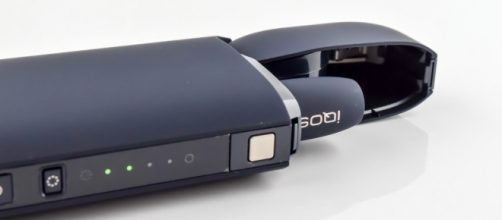Started as a novelty item out of China nearly a decade ago, e-cigarettes have evolved into a major business as companies jockey for control of the market and tweak the technology along the way. But unlike the traditional tech innovation model where a tiny startup becomes a disruptive giant, the e-cigarette industry is poised to be dominated by large established companies, even as debate rages over whether this new form of smoking tobacco products is truly safe.
Philip Morris will introduce new system
With sales for traditional combustible cigarettes on a steady decline, the nation’s largest tobacco companies are beginning to turn towards the e-cigarette market in order to expand their consumer base.
Evidence for this could be found last week at the Consumer Analyst Group of New York conference in Boca Raton, Florida where Altria’s CEO, Marty Barrington, shed new light on plans by partner Philip Morris International to commercialize their e-cigarette heated tobacco system, also known as iQOS (“I Quit Ordinary Smoking”).
“PM USA (Philip Morris) is developing robust marketing plans to introduce iQOS into a lead U.S. market,” said Barrington. He went on to characterize the plans as “a high-touch, integrated engagement model to educate interested adult smokers at retail and in the digital space.”
Altria’s investment in iQOS could pay off significantly for years to come. Wells Fargo’s tobacco industry analyst, Bonnie Herzog, has reported that combined profits of the new iQOS technology with combustible Marlboro brands could be nearly 50% higher by 2025 than if the company remained solely dependent on traditional cigarettes.
The company’s iQOS system, which will be marketed under the Marlboro name, involves a rechargeable electronic device that heats tubes of tobacco called HeatSticks. This process is more commonly known as “Heat Not Burn,” and the tobacco industry has been funding research which they hope will demonstrate a proven drop in lung disorders for users of e-cigarettes.
Although Marlboro’s HeatSticks have been sold for several years in Japan and Europe, their introduction in the U.S. will require Food and Drug Administration (FDA) approval. Philip Morris has submitted an application to begin marketing their iQOS product in the U.S. and hopes to have FDA approval later this year.
E-cigarette industry in turmoil
Big Tobacco’s move into the e-cigarette market comes at a volatile time for the industry. Until the rise of “heat not burn” products like the Philip Morris iQOS system, alternatives included liquid-based nicotine that was heated in a voltage-regulated device to create vapor. This led to the rise of numerous device companies to manufacture the hardware and “vape shops” to sell the liquid nicotine.
But new U.S. government regulations and state laws have combined to put a distinct chill on the e-cigarette business. When the FDA ruled last year that e-cigarettes and liquid nicotine must receive government permission for sale by August, 2018, a number of businesses closed their doors, citing the multi-million dollar cost to gain approval.
One such firm was ProVape, the largest vapor hardware company in the U.S.
In California, a voter-approved measure to include e-cigarettes in tobacco product taxation, has resulted in the closure of numerous small businesses who sold liquid nicotine as the state prepares to levy a tax increase of nearly 65 percent. “A lot of shops are closing down,” said Tony Doan, the president of Shijin Vapor, a manufacturer of liquid nicotine products with 500 retail locations worldwide. Doan, who was interviewed for this story, indicated that the outcome will likely be “a lot of black market stuff.”
It may be years before research studies and government analysis can determine whether e-cigarettes provide a healthier alternative to traditional smoking. It’s also quite possible by then that the same companies who brought us paper-wrapped nicotine will own a monopoly for the electronic version as well.

